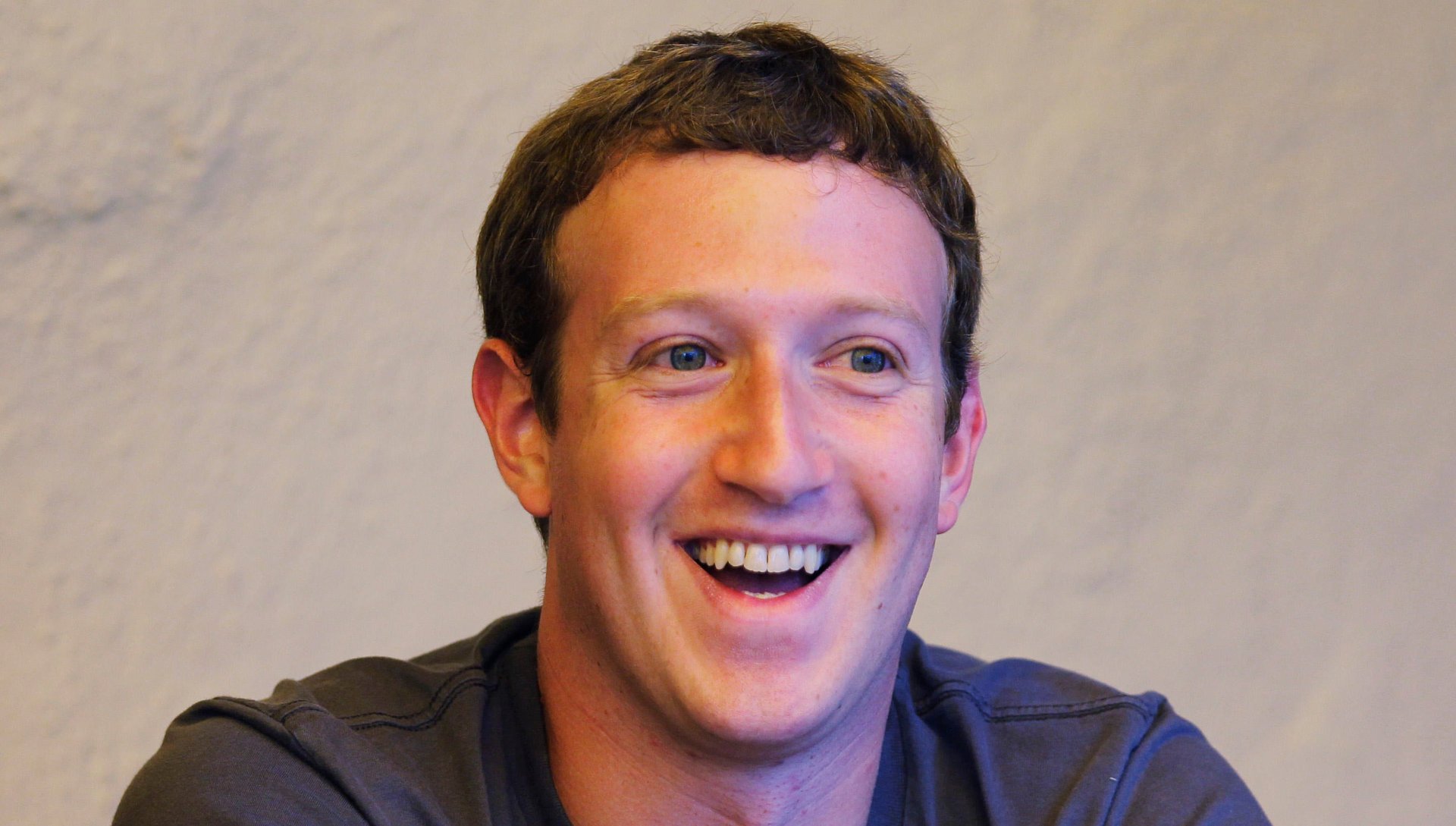Mark Zuckerberg is way nicer than you think
Mark Zuckerberg has a complicated public image. In early interviews, the Facebook chief often appeared awkward. The 2010 film The Social Network portrays him as a chilly, socially inept, narcissistic boy-genius. And the media has often depicted him as a ruthless, ambitious lone-wolf type, willing to do whatever it takes to win—whether that meant allegedly pulling one over on the Winklevoss twins or diluting his co-founder’s stock in the company.


Mark Zuckerberg has a complicated public image. In early interviews, the Facebook chief often appeared awkward. The 2010 film The Social Network portrays him as a chilly, socially inept, narcissistic boy-genius. And the media has often depicted him as a ruthless, ambitious lone-wolf type, willing to do whatever it takes to win—whether that meant allegedly pulling one over on the Winklevoss twins or diluting his co-founder’s stock in the company.
But the 32-year-old Facebook CEO has also evolved over the years, setting annual “self-improvement challenges” and demonstrating an impressive commitment to philanthropy. Now a new book by his colleague, Facebook chief operating officer Sheryl Sandberg, depicts a side of Zuckerberg that may come as a surprise to many: the supportive, thoughtful, generous friend.
In her book Option B: Facing Adversity, Building Resilience, and Finding Joy, co-authored with Wharton professor and organizational psychologist Adam Grant, Sandberg traces her journey through grief after the sudden death of her husband, Dave Goldberg. Zuckerberg appears just seven times in the 183-page book. But every mention shows him coming through for Sandberg in ways large and small. In a Guardian interview earlier this month, Sandberg credits her boss, who is 15 years her junior, with saving her life after her husband’s death: “Mark is why I’m walking,” she said. “Most of what [he and Priscilla] did is not even in the book, because they did so much.”
Here are a few of the moments that did make it in—which can serve as a helpful guide for anyone trying to support a friend going through a dark time.
The friend who takes action, without being asked
Zuckerberg first appears when Sandberg describes the initial days after she found Dave collapsed on the gym floor. “When Dave died, I was incapable of doing much of anything. Others jumped in to help. My boss Mark Zuckerberg, my brother-in-law Marc, and Marne planned the funeral.”
Later, she describes how Zuckerberg planned a trip for Sandberg and her children. “At night, I’d walk into the kitchen expecting to see him, and when he wasn’t there the pain hit hard,” she writes, “Mark Zuckerberg and his wife, Priscilla Chan, thought it might be comforting to take me and my kids to a place where we had no memories of Dave, so they invited us to join them on a beach we’d never seen.”
These unprompted, intuitive gestures were deeply meaningful to Sandberg, who speaks in depth about the pain she felt when friends didn’t acknowledge her grief. “I couldn’t understand when friends didn’t ask me how I was. I felt invisible, as if I were standing in front of them but they couldn’t see me,” she writes, “If your ankle gets shattered, people ask to hear the story. If your life gets shattered, they don’t.” She also writes about feeling stymied by questions like “Is there anything I can do?” ”While well meaning, this gesture unintentionally shifts the obligation to the aggrieved. Instead of offering ‘anything,’ just do something,” she says, quoting author Bruce Feiler.
A shoulder to cry on
Reflecting on the beach vacation, Sandberg writes, “when I sat on a bench overlooking the ocean, I glanced into the big open sky … and saw Dave’s face looking down on me from the clouds. I was sitting between Mark and Priscilla and I could feel their arms around me, but somehow Dave managed to be there too.”
Zuckerberg’s effortless support helped get her through work days, too, Sandberg told the Guardian. ”When I felt so overwhelmed and so isolated and just needed to cry, I would grab him into his conference room and he would just sit there with me and be like, ‘We’re going to get through this and we want to get through it with you.’ He did it over and over.” These descriptions not only highlight Zuckerberg’s kindness, they also show that he embraces an invaluable trait many Silicon Valley types resist: emotional vulnerability.
A voice of reason, and reassurance
Perhaps where Zuckerberg shines most is when Sandberg describes his efforts to stabilize her shaken confidence and perception of reality—what she refers to as ”secondary losses.”
Upon returning to Facebook after Dave’s death, Sandberg recalls feeling like a ghost, her previously fluid professional interactions feeling “cold, distant, and stilted.” She sought out Zuckerberg for help. “I told him I was worried that my personal connections with our coworkers were slipping away,” she writes. “He understood my fear but insisted that I was misreading their reactions. He said they wanted to stay close to me but they did not know what to say.”
Zuckerberg also reassured Sandberg when she called him worried that she’d made a fool of herself in a meeting—rambling on and mistakenly saying that Facebook’s head of product and engineering worked with her at Google. “‘Don’t worry,’ Mark said, ‘Thinking Boz worked at Google is the kind of mistake you would’ve made before,'” she writes.
Zuckerberg then pointed out things Sandberg had said in the meeting that were on-target, which she hadn’t remembered, and said that he didn’t expect her to always hold it together. “This comment helped me set more reasonable expectations and stop being so hard on myself,” she writes. “Mark’s compassion started me down the path of learning to have compassion for myself. I felt deep gratitude for having such a supportive boss, and I know not everyone does.”